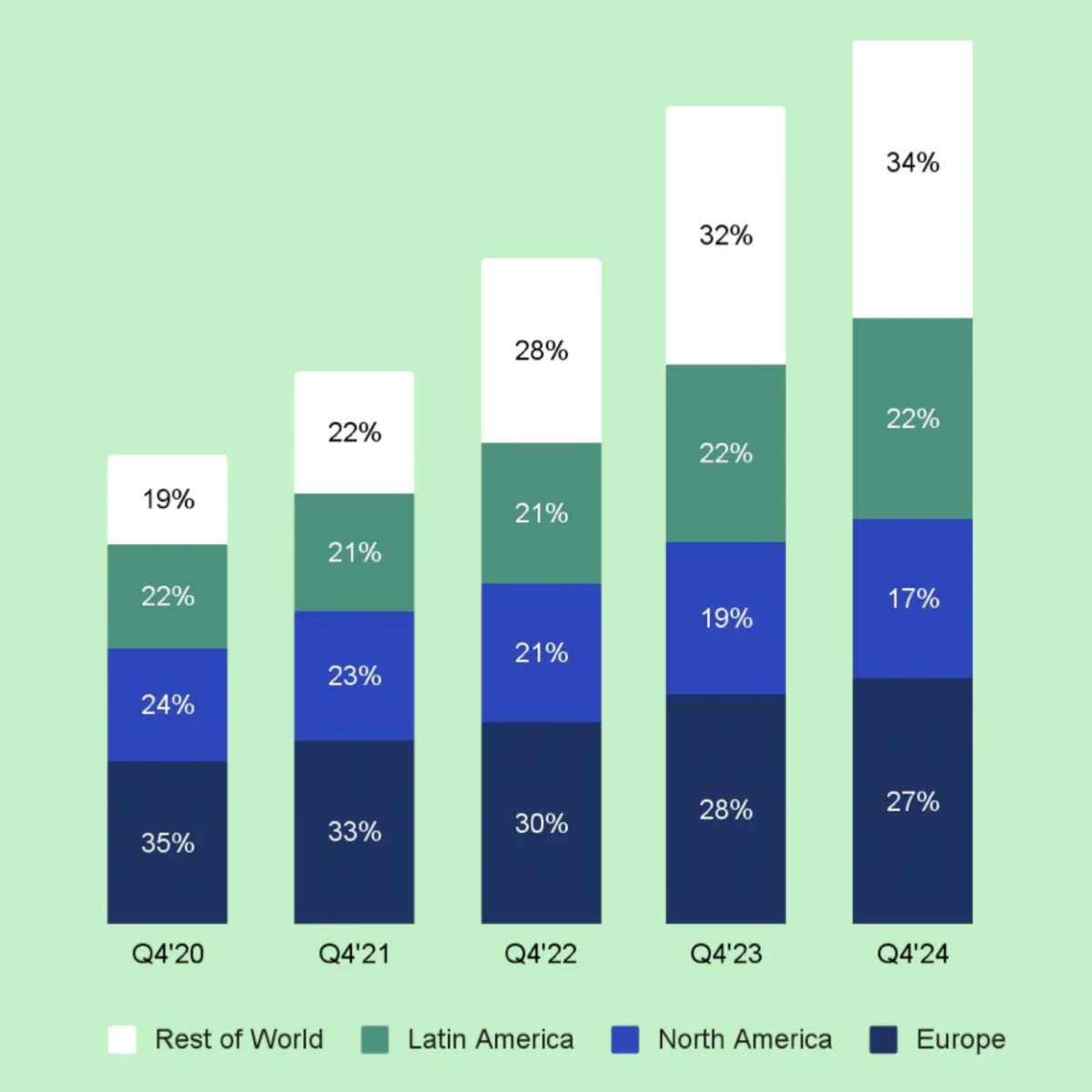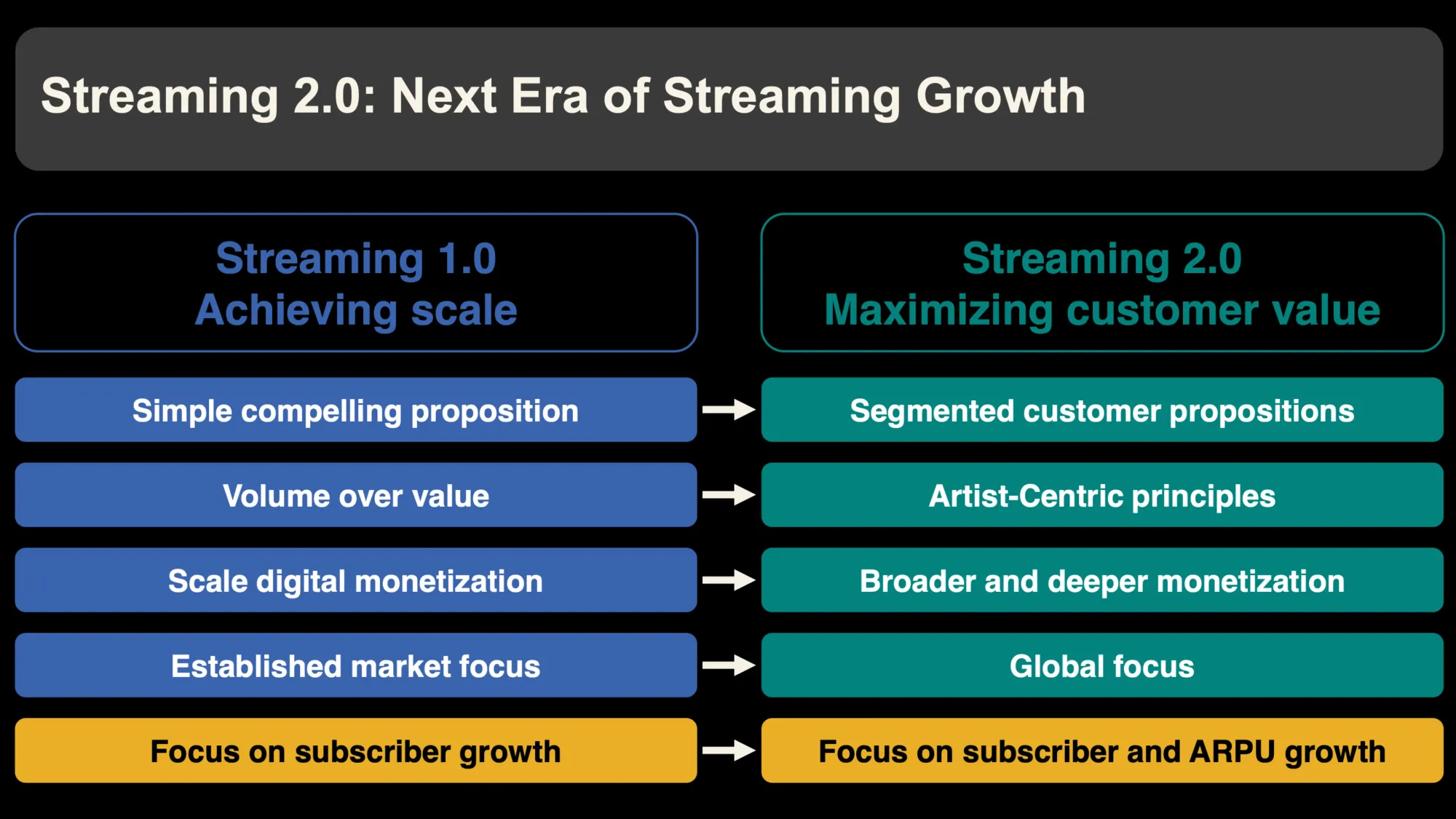
According to Spotify's Q4 2024 earnings report released on February 4, 2025, the streaming platform achieved its strongest fourth quarter performance to date, marking several milestone achievements nine days ago. The results demonstrate significant growth across key performance metrics and operational efficiency improvements.
According to the company's financial statements, total Monthly Active Users (MAU) grew by 35 million to reach 675 million, representing a 12% increase year-over-year. Premium subscribers increased by 11 million to 263 million, matching the company's previous record from Q4 2019.
The financial performance showed total revenue of €4.2 billion, growing 16% year-over-year. Premium revenue rose 19% year-over-year on a constant currency basis, driven by subscriber growth and Average Revenue Per User (ARPU) increases. Ad-supported revenue grew 7% year-over-year to €537 million.
According to Chief Financial Officer Christian Luiga, gross margin reached a record 32.2% in Q4, surpassing guidance by approximately 40 basis points. The company achieved operating income of €477 million, though this was impacted by €96 million in social charges related to share-based compensation. Free cash flow reached €877 million, bringing the full year 2024 total to €2.3 billion.
The company's annual Wrapped campaign delivered strong results, according to Co-President and Chief Business Officer Alex Norström. Over 245 million users engaged with Wrapped, surpassing 2023's record within the first seven days of the campaign across 184 markets and 53 languages.
On the product side, Co-President and Chief Product and Technology Officer Gustav Söderström noted significant progress in video content. The platform now hosts more than 330,000 video podcasts globally, with over 270 million users having streamed video content. Premium subscribers in select markets gained access to uninterrupted video podcast viewing.
Looking ahead to Q1 2025, Spotify forecasts reaching 678 million MAUs and 265 million Premium subscribers. The company expects total revenue of €4.2 billion, a gross margin of 31.5%, and operating income of €548 million.
According to CEO Daniel Ek, 2025 will focus on "accelerated execution" across three key areas: faster product improvements, increased investment in music experiences, and maintained resource discipline. The company paid out €10 billion in royalties to the music industry in 2024, bringing the total since founding to nearly €60 billion.
The results came during a period of broader industry changes. The company completed an early renewal of its agreement with Universal Music Group, though specific details remained undisclosed. Spotify's workforce consisted of 7,261 full-time employees globally at the end of Q4 2024.
 PPC LandLuís Rijo
PPC LandLuís Rijo
In emerging markets, Spotify reported increased adoption rates. "What I'm particularly pleased about in Q4 and maybe even the back half of the year is the development of the emerging markets," stated Ek during the earnings call, noting strong MAU growth and improved subscriber conversion rates.
The platform continues expanding its content offerings beyond music. Educational content trials in the UK have shown promising early results, with millions of subscribers engaging with educational material. Ek highlighted the strategic importance of this expansion, noting that while the global entertainment industry represents approximately $2-2.5 trillion, the educational marketplace excluding K-12 represents a similar size opportunity.
Looking at technological innovation, Söderström detailed the company's approach to artificial intelligence, identifying three key areas of impact: operational productivity, content moderation cost reduction, and enhanced user experience through improved recommendations and features like AI DJ.

